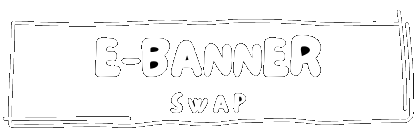Credit cards offered by a credit union are called credit union revolving lines of credit or card accounts. They are branded with the Visa or Mastercard logo and work exactly the same as a card issued by a traditional bank. As a matter of fact the only real difference between a card issued by a credit union and a card issued by a bank or other financial institution are the terms that govern the account. Credit unions are a non-profit, customer service focused financial entities. Because their focus is on their customers instead of their bottom lines and shareholder dividends, they tend to offer better terms when it comes to interest rates and fees than other financial institutions.
If you are considering applying for a revolving line of credit with a credit union in Sweden, here are some of the great things you can expect:
Lower Interest: Banks do have an edge over credit unions, at least in the beginning thanks to their ability to offer low and no interest introductory periods. Credit unions tend to shy away from gimmicky marketing ploys and offer a low, fixed interest rate that will be effective from the day you open your account until the day you close it. And, for this reason, credit union cards tend to cost less to carry over bank cards.
Flexible lending terms: Credit unions tend to be more conservative than banks when it comes to the people it will approve to carry their credit cards; many have more flexible credit underwriting guidelines that allow them to review unconventional documents to determine creditworthiness. Additionally, most will allow customers who have been declined for an account to appeal the decision and have their application and documentation submitted to a loan committee for additional scrutiny. This means that if you don’t have a strong credit score but you can prove that you have an adequate income and assets to support your application, you will most likely wind up approved for a credit union card. The loan committee will also allow you to write a letter to support your position and offer compelling reasons for why you should be approved.
Solid Customer Service: Swedish Credit unions are extremely customer focused. This is demonstrated by their strong commitment to excellent customer service. What’s even better is that unlike most card companies or big banks, you will have a local office you can visit in order to address concerns. This is an invaluable asset if you are having problems paying your balance. Unlike banks, most credit unions are very interested in helping you address your financial problems and will work with you when you are experiencing a financial hardship in an effort to get you back on your feet quickly.

Of course, credit union revolving lines of credit aren’t necessarily for everyone. Fackförbund like all other financial institutions isn’t immune to tough economic times. Unfortunately, one of the very things that makes working with a credit union may actually work against it during a recessing: its small size. This makes them more susceptible to closure than even the smallest of banks, and if they end up closing their doors it can leave you high and dry or being transferred to a larger entity who may change the terms of your account.
Another drawback is the lack of accessibility to cash. Very few credit unions have a significant number of ATMs locally and you will almost never find a credit union ATM outside of your local municipality. The good news is that most credit unions will waive ATM fees if you have to use a non-credit union ATM. And lastly, when you open a card account with a credit union where you have a secured loan, they are cross-collateralized. This means that if you default on your card account, the credit union can repossess the collateral pledged against your secured loan. This aspect holds true even after you pay off your secured loan.




